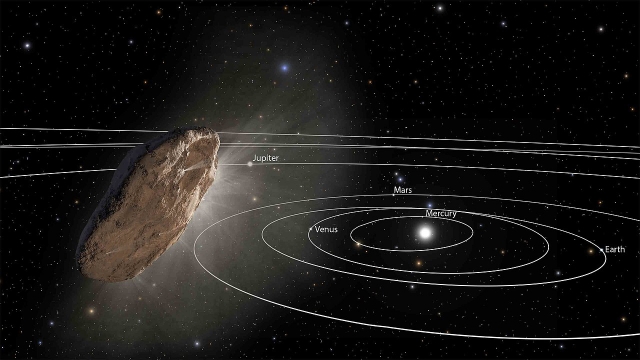Oumuamua is the first interstellar object detected passing through the Solar System. We still don't know much about the characteristics of this celestial body, but Harvard astronomers suggests it is a solar sail of extra-terrestrial origin.
Oumuamua was discovered on 19 October 2017 by Robert Weryk from University of Hawaii at Manoa. Astronomer used the Pan-STARRS telescope at Haleakala Observatory. When first seen, object was about 33,000,000 km from Earth and already heading away from the Sun.

Multiple observations of Oumuamua revealed that it has the characteristics of both a comet and an asteroid, and it did not show any signs of outgassing as it passed close to our Sun, which would have indicated that it was a comet. But scientists was able to obtain spectra that indicated that Oumuamua was more icy than previously thought. Moreover, analysis of the images obtained by Hubble Space Telescope revealed strange behavior – Oumuamua, as it began to leave the Solar System, had increased in velocity, rather than slowing down as expected.
Shmuel Bialy and Abraham Loeb, astronomers from the Harvard Smithsonian Center for Astrophysics say that Oumuamua could in fact be a light sail, a form of spacecraft that relies on radiation pressure to generate propulsion, and it may been sent from another civilization. The probe may be defunct and this would help explain why program called Breakthrough Listen found no evidence of radio transmissions. Oumuamua could be the first known case of an artificial relic which floated into our Solar System from interstellar space.